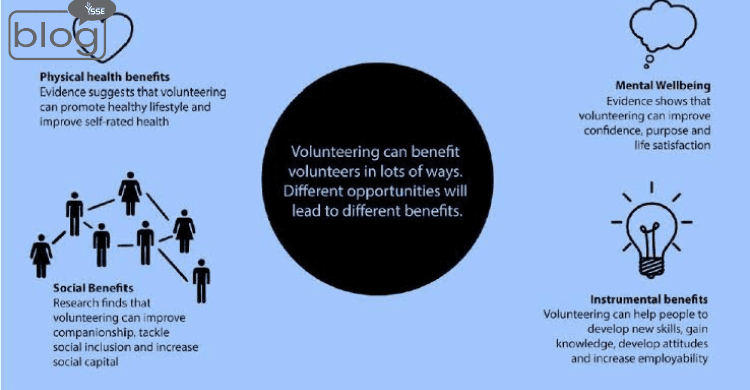We all have a vested interest in seeing youth succeed. Regular access to civic-engagement opportunities can lead to better outcomes for children, young adults, and their communities. Youth who volunteer are more likely to perform better in school and work, and become civically active adults. Below, we discuss some of the many benefits of youth volunteerism, and how young volunteers can make valuable contributions to your organization.
The Importance of Volunteerism for Youth
Why is volunteering important for youth? While we should support youth volunteerism to better our communities, children and teenagers who volunteer will also see and feel transformation within themselves. In the words of Opportunity Nation, “There is mounting evidence that volunteering, participating in service projects, and other forms of community involvement are more than feel-good activities. They can contribute to better outcomes for youth and for communities.”
Develop Transferable Skills
Youth who volunteer regularly practice skills—like collaboration and problem solving—that are vital to succeed in academics, the workplace and their personal lives. Whether it’s collecting donations by selling gourmet popcorn to their neighbors or spending time reading with the elderly, youth develop an understanding of citizenship that extends into adulthood. That’s why colleges and employers look for civically engaged applicants who will thrive in team settings and take on challenging work.
Reinforce Social Capital
Teens who volunteer build relationships and strengthen their support network, or “social capital.” Social capital strengthens trust and sense of community and is critical to upward mobility. According to Opportunity Nation, volunteer opportunities for low-income teens are especially integral in facilitating meaningful connections and sourcing educational pathways, “Research shows [volunteerism] can serve as an effective conduit to positive educational and career outcomes for low-income youth.”
Want ideas for your youth volunteering program?
Volunteering gives youth the opportunity to work through real challenges and make meaningful change. These transformative experiences encourage teenagers and children to confront moral dilemmas, investigate solutions, and employ innovative thinking. As young volunteers begin to notice real changes as a result of their effort, they establish a cognitive connection between effort and positive outcomes.
As children grow, they develop a more refined sense of self-awareness and an awareness of others. Volunteers must put their own needs aside to address the needs of others. Children who do so will also learn to value and understand themselves throughout the process. Exposure to meaningful volunteer opportunities as children and adolescents will help foster lasting empathy and inclusivity, qualities necessary in cultivating safe, unified communities.
Support Academic Success
When students participate in a service-learning curriculum, they demonstrate deeper cognitive engagement and greater motivation to learn. And educators are employing service-learning as a tool to reduce high-school dropout and increase achievement among at-risk students. Volunteer opportunities paired with a good education are the success “power couple” for today’s youth; nonprofits and schools together can develop a children and teen volunteerism program to support a rising generation of altruistic citizens.
The Benefits of Youth Volunteerism for Communities
The benefits of youth volunteerism are plentiful and our volunteer organizations and communities reap just as many benefits when we encourage volunteerism among our nation’s youth like incorporating new skills and ideas into your programs, fostering a community of trust and encouraging lifelong volunteerism.
Build Safer Communities
Teens who volunteer are 50% less likely to participate in risky behaviors, are less likely to become pregnant and use drugs and are more likely to experience psychological well-being. Young people who are supported by their communities are less likely to become incarcerated as adults and more likely to lead healthy, productive lives. By providing opportunities for youth volunteerism, your organization can work to strengthen trust and build a sense of unity among your community’s diverse members.
34% of the U.S. population is under the age of 25, and a quarter of the U.S. population is under the age of 18. Communities can tap into this substantial population and significantly increase your volunteer pool. With their vast social networks and technological savviness, youth make for great volunteer recruiters! Encourage teenagers and young helpers to invite their friends and you’ll be amazed at what they can accomplish together.
According to research, young people are well-suited to solve complicated social problems. Between the ages of 12 and 25 when their brains are fast and sophisticated, teenagers and young adults are especially wired to seek new experiences and take risks.
Participation in volunteer and civic opportunities from an early age instills empathy, inspires a sense of citizenship and helps youth find pathways to meaningful education and work. In fact, young people who volunteer help to improve the present, while ensuring healthy, secure futures for themselves and their communities.
To read more blogs, click here.
Writer,
Tabassum Akter Taba
Intern at Content Writing Department
YSSE
Category :

